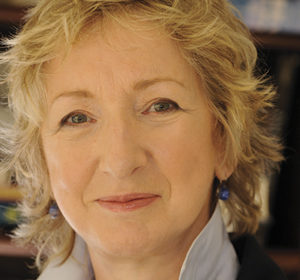“There’s a huge can-do attitude here in the U.S. that’s very creative, very innovative.” – Liam Casey.
“You have to go, and you have to do well,” Molly Fogarty told her grandson. Molly had been left a young widow with four daughters, the oldest of which was 13 years, and a farm to run. Now her grandson, the only male in that family of women, was about to leave home to take up his first job.
His name is Jack Ryan and he was born to Molly’s daughter Teresa and Thomas Ryan, whose father had worked as a telegrapher on the railroad before settling on a farm in Illinois.
Molly sent for her father, Dennis Keating, to come over from Limerick to help with the farm when her husband died. “Reports were mixed on how helpful he was,” Jack said, but “the one thing that is indisputable is that he certainly livened things up.” After her family was raised, Molly moved to Assumption, Illinois. She went to Mass every day and prayed that Jack and her other grandchildren would do well.
Jack did well. He went on to an extraordinary career that included a stint as Director of Supervison for the Federal Reserve. On the night we met, at our annual Stars of the South dinner in Atlanta on November 17, Jack wanted to talk, not about his career, but about his father’s family, the Ryans from Tipperary, his mother’s people, the Fogartys from Limerick, and most of all, his grandmother Molly.
He said it was Molly’s reserve of courage that he called upon when, as a young man, he was asked to present a proposal at the White House, and at other times during his life when he needed to face down a challenge.
There were many stories like Jack’s told at our Stars of the South dinner – indeed, the ancestors no longer with us were the true stars of the night.
Michael Nolan talked about his great-great-grandparents, Matthew and Ann Norris Nolan, who immigrated from Tullow, County Carlow and settled on the west bank of the Mississippi River in New Orleans in 1863, and how their son John Peter became a master mechanic for the Southern Pacific Railroad – the beginning of the family’s upward mobility. Shirley Franklin, the first African-American female to serve as mayor of Atlanta, talked about her Irish grandmother sewing a green ribbon to her collar each St. Patrick’s Day to remind her grandchild that she had Irish heritage too.
Mike McGuire talked about growing up in a small town in northwest Ohio where his family owned a small grocery store. “Everything I needed to know about life I learned there,” he said. He recalled his father quietly slipping a man money to buy groceries for Thanksgiving, and said observing his parents in their day-to-day dealing with customers, some of whom had fallen on hard times, taught him compassion.
“You have to go, and you have to do well.” How many young Irish boys and girls left lreland to those words?
Their own survival and often-times the survival of their family back home depended on it.
Like Molly, they kept on keeping on when the going got tough and that’s the stuff that America is built on. And that’s the stuff, the “can-do attitude” that spurred Liam Casey (see our cover story) to international success and our Business 100 to embrace leadership roles.
When Katherine Irwin Thomas, a fiddler from Tennessee whose family emigrated from County Armagh in the early 1700s, took the stage to play a soulful Irish tune, it was easy to imagine a window onto the past opening and Molly and the other ancestors entering the room. Amidst the sailing voice of Thomas’ fiddle, one could almost hear them whisper, “You did good.”


Leaving a question: I’m looking for tales passed down from GG Grand parents about surviving the potato famine and lessons learned. Going to Ireland in Aug 2013 and looking for leads to sources of this info. Thanks. (I’m only 1/4 Irish, but does it matter?)